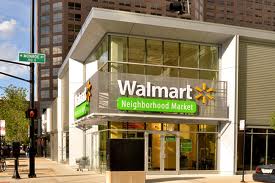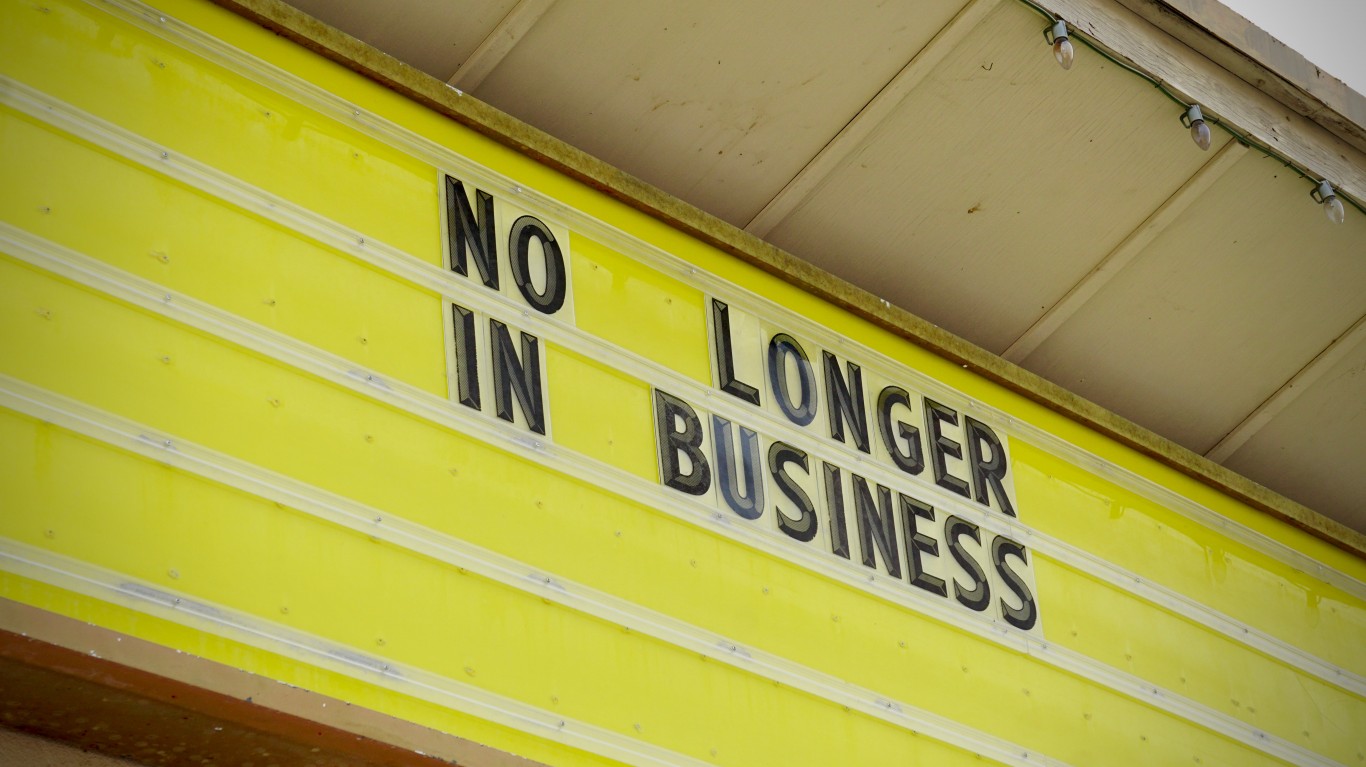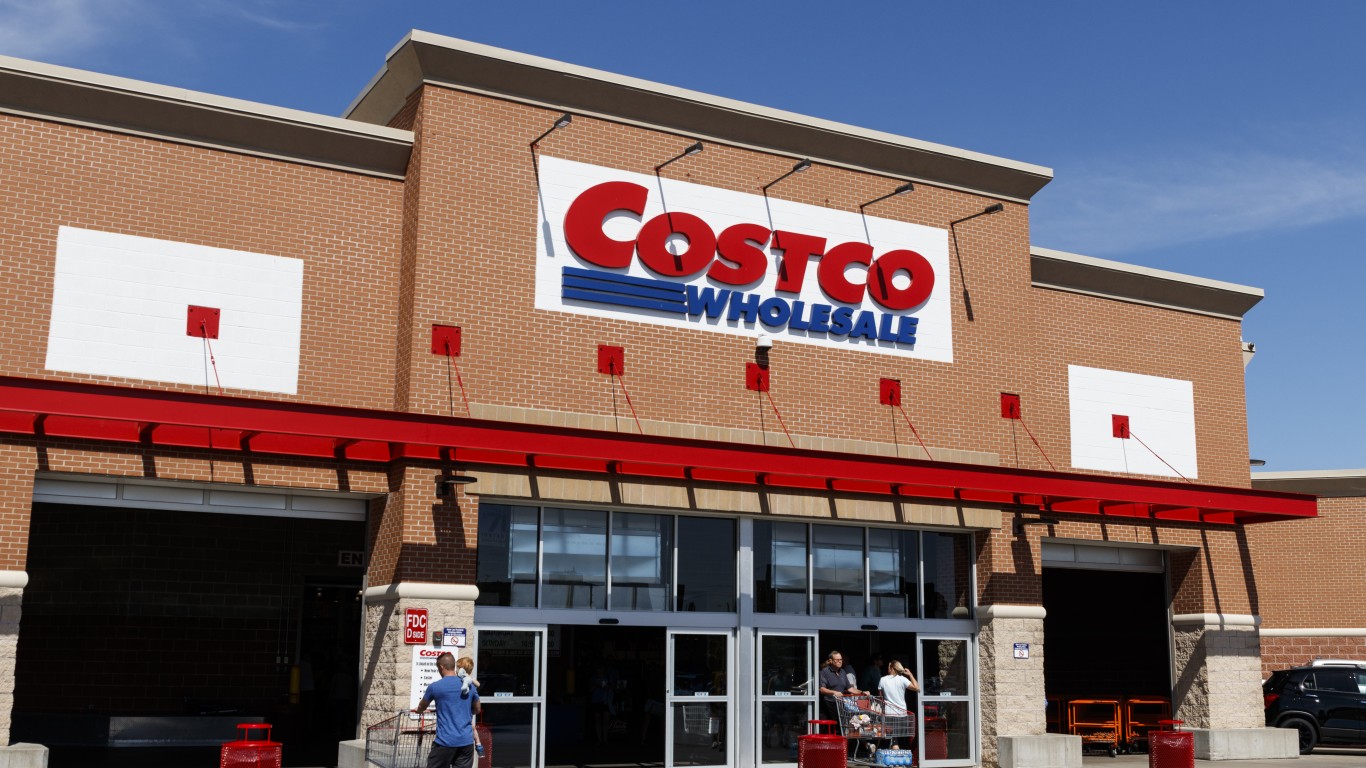Although there’s something to be said for not needing a trolley car to go from one side of a grocery store to the other just to pick up a few items, the new rush among supermarket operators to adopt a Lilliputian scale footprint may cause more than a few to get stuck on the wrong check out line. Source: Wal-Mart Stores Inc.
Source: Wal-Mart Stores Inc.
While the average neighborhood grocery store has bulked up to around 50,000 square feet — and an average Wal-Mart (NYSE: WMT) superstore covers 180,000 square feet — the trend is reversing now and supermarkets are seeing the potential in reducing their footprint by orders of magnitude. More and more stores are planning to open new locations that are less than half the size of their current stores, and this may lead to a shortfall of sales and profits.
For the longest time, the supermarket was a resilient investment because regardless of economic conditions, people still need to eat, though razor thin margins require they make up in volume what they couldn’t achieve by padding profits. But the depths of the recession and the economy’s slow, malingering recovery have necessitated changes as business as usual becomes a thing of the past.
ALSO READ: Ten Companies With the Least Valuable Workers
Net sales at Wal-Mart barely budged last year, rising just 1.6%, even as comparable store sales — an important retail metric that gauges growth achieved organically and not by adding more stores — actually shrank year over year, falling 0.5% in the U.S. Sales at Safeway (NYSE: SWY), the country’s second largest supermarket operator behind Kroger (NYSE: KR), were relatively flat in 201, and excluding fuel sales its comps were up just a meager 0.8%.
But spurred by the success enjoyed by small format grocers like recently IPO’d Sprouts Farmers Market (NASDAQ: SFM) and Trader Joe’s, with average store sizes around 25,000 square feet or less, we’re seeing the biggest names in the supermarket industry adopting similar floor plans.
Kroger, for example, operates the Turkey Hill Marketplace that, at around 7,000 square feet, is taking head on the challenge represented by neighborhood convenience stores. According to the Association for Convenience & Retailing, the average C-store is around 2,750 square feet with the largest tipping the scales at nearly 3,600 square feet (though selling space is typically limited to around 2,800 sf). Thus C-stores like Wawa, 7-Eleven, and Speedway are proving to be, well, a convenient one-stop shop for consumers.
Wal-Mart’s taken notice of these changes, too, agreeing to open between 270 and 300 Neighborhood Markets and Wal-Mart Express stores over the next year. These small format stores sport average footprints of 42,000 and 15,000 square feet, respectively. It’s even testing out a single 2,500-square-foot store.
But with everyone scaling back, consumers just might balk at the lack of selection to which they were accustomed. They might be looking for speed, freshness, and convenience, but unless I’m looking for a few specific items I will usually pass by a Trader Joe’s because I know it’s not going to have all that I’m looking for.
Not only might retailers hurt themselves because they don’t have a broad selection of products, but also because they don’t carry particular brands. Even in small-scale supermarkets that are simply reduced-sized versions of their larger brethren, choices have to be made on what brands to carry and that necessitates customers finding their favorite ones aren’t stocked.
Wal-Mart seems to have perfected the idea best, covering all aspects of the industry, from behemoth super centers to the tiny quick marts. But with only a few hundred of each kind in existence, it doesn’t give much opportunity for moving the needle yet and other retailers may just end up eyeing their results hurt in the process.
Sponsored: Find a Qualified Financial Advisor
Finding a qualified financial advisor doesn’t have to be hard. SmartAsset’s free tool matches you with up to 3 fiduciary financial advisors in your area in 5 minutes. Each advisor has been vetted by SmartAsset and is held to a fiduciary standard to act in your best interests. If you’re ready to be matched with local advisors that can help you achieve your financial goals, get started now.
Thank you for reading! Have some feedback for us?
Contact the 24/7 Wall St. editorial team.



